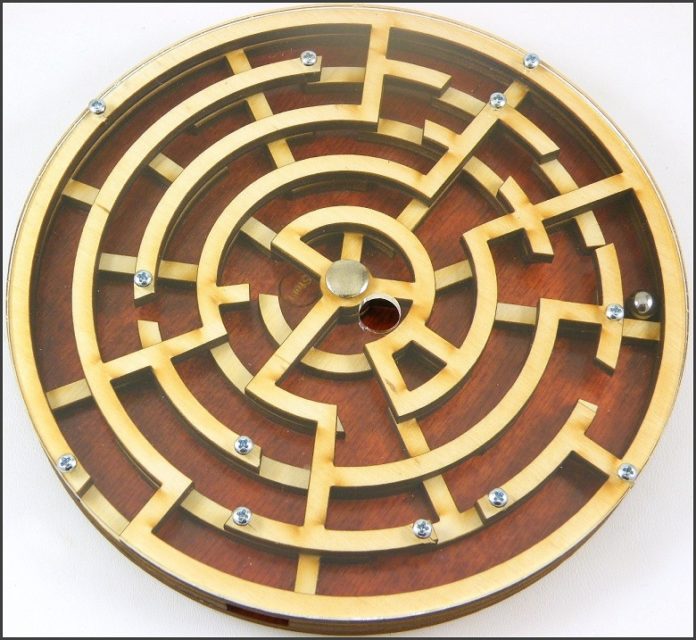I found myself beginning to understand a friend of mine, a Marine, whose motto is “Point to an obstruction, tell me to remove it, and it will be eliminated.” Not once does he ask himself if it will be neat when he’s done the removing. My friend does not have shoulds in his life. Besides Semper fi, action leading to solution is his motto.
I am not a Marine, but am Semper fidelis ad verba, making my living with words since 1992 as a developmental editor, editor, and designer, author of many types of books, and Indie publisher.
I tell you this to help you understand that when it comes to thinking through wide-ranging projects involving ideas, a variety of subject matter, and wildly different approaches to reach a variable mix of audience types, I’m used to challenging thought processes, discussing choices, and making recommendations. People I work with often say, “Wow. I would never have thought of that” and “Thank you for challenging me.” I do not let myself off the hook, either.
My nickname, given to me by my grandfather when I was five, was “Angie-Ahhhh” because that was what everybody said after they got a long series of logical questions they could not answer. The “ahhh” was not admiration…it was frustration at my never stopping with the unraveling of what I clearly saw needed to be found out.
But I get stuck sometimes in getting to the nut of a challenge. Depending on how much thinking I’ll have to do, I’ll either go work in the yard for a couple of hours or I will play solitaire on the computer for a few minutes, both activities that allow my brain to veg-out so my subconscious can get to work. Recently, though, solitaire has not been doing it for me, even as I played different types of games. Looking for another way to quickly reach my subconscious, I realized I needed another pathway and found a game called Unblock Me from xpgameplus.com.
Unblock Me is a square grid within which are rectangle shapes of one and/or two sizes that move straight on a grid, some go up and down, others go left and right. None can go in all directions. None can be rotated. None can move diagonally. All but one are blue; the one is red. The red one can only move on the horizontal plane.
The goal is to move the red one out of the exit at the right of the square.
Here comes the interesting part: This game is challenging my idea of should.
I hate should. The very notion of should is overused and overrated. And yet in playing this game I have identified a should of my own and that I need to challenge it. What is that should?
It is the idea that a solution should be organized and neat. Further, that once I’ve made a decision about where a block should go and its been moved, then the answer of that block should not need to be asked again.
The rectangle blocks in the grid are either 2×1 in length/width or 3×1. The red block is 2×1. The square itself is 6×6 and the red 2×1 block sits on the third horizontal plane from the top.
Obviously, you now see that to exit the red block from the square, no vertical 3×1 block can be in its path. Yet the designer of these often put such vertical 3×1 blue blocks in the path of the horizontal 2×1 red block. Only by moving all blocks on their predestined planes governed by rules that do no change can the red block be set free.
Time after time I have found myself wanting to stack the blocks in a neat arrangement. I want the long ones here and the short ones there, organized, no gaps, neat, tidy, efficient, allowing for only one quick movement to move the red block all the way to the right and out.
Every now and then, the square looks like that and I find a sense of job well done and a sense of calm come over me as the red block slides out. But darn it all, most of the time the blocks won’t settle into that neat, quick solution causing me to be perturbed, sometimes even mad, and often missing out on a simple and elegant solution before my very eyes.
Why, oh why, won’t the blocks do what I know should be done?
After playing this game over a couple of weeks and studying my reactions, I had an epiphany. And it was that I, who hate the notion of should and all that it limits me to, actually still had a deeper love affair with should. What did that love affair look like?
For one, while I challenge others to step outside their comfort zone, I found there was a comfort in the should that I still enjoyed, yes, even needed.
What in myself is still needing the comfort of my should, that is, solutions should be neat and tidy? Should removes the necessity of having to continually determine choices, deciding which to choose, and even limiting action of making that choice a reality.
This is when I began understanding the thought processes of my friend the Marine. Then I thought of Special Ops types and police and firefighters and EMTs and trauma surgeons and nurses and waiters serving drunk patrons. In their jobs their shoulds are very limited. Every situation, every patient, every guest, every emergency, every battle, every rescue, vary widely in their solutions. The situation itself cannot change in order to meet predetermined solution choices. To meet the challenges, the way through and out is more often than not messy, disorderly, chaotic, must adapt on the fly, doesn’t make sense to those simply looking on, and takes a focus of attention on a tumultuous situation that is to be admired for the very bravery needed to deal with the unknown.
Training only helps to learn the processes that may be needed. It never tells us which will always be needed every time.
And thus, as I played Unblock Me, even with my epiphany, I found my go-to state of mind never changes. I want it neat and orderly and, interestingly, since I started this column have studied my response to the game ever more closely. You know what I found? Much to my dismay, I found I make an almost subconscious decision about the solution and shape placement before I’ve barely begun moving one block and it is never part of the freeing solution.
I am not alone in this want of the comfort of easy solutions. More people than not want the should of A, B, C to always be the solution. However, unless willing to remove themselves from the comfort, those prone to seeking the comfort of the should can easily be radicalized and even more easily fooled by simple, easy, neat, tidy solutions to complicated challenges of those who are not in the fray but simply a bystander.
Think of the comfort of quotas pushed upon society for what some see as purposeful inequalities in Race, Gender, Pay, and so forth.
The very people who do not want to be profiled, push profiling to stratospheric levels. They see nothing of the absurd in that. Further, those who want the comfort of the always of shoulds are not courageous. They are often weak morally, spiritually, and/or emotionally.
These types make up the bulk of humanity and thus I say with no sarcasm “Please, God, help us.”
Writers often say, “Well, the Chicago Manual of Style says this…” about the use of certain punctuation marks. I even started a fight in a bar one time about commas. Didn’t mean to do that, by the way, but I could absolutely identify every person in that verbal brawl whom I would never date much less marry. Like my ex-husband, they were highly invested in their shoulds and did not want those to be defied, questioned, or changed to a multi-choice option.
You see, they loved the comfort of certainty and never once asked if that certainty was actually best. Choosing where to put a comma is never as easy as choosing A, B, or C, and neither are societal quotas. You know what they say? Repeating a thing and expecting a different result is just nuts. But oh, the comfort of that absolute certainty surely can make one sleep well.
Playing that grid puzzle made me see that even I, who for many years now has decried the should, still have my need for the comfort it brings. I shall be giving attention to what in my life are the shoulds that are limiting me. It will be difficult, but worth it for sure.
The shoulds are always black and white and restrictive; while some black and whites are actually needed, most we put on ourselves are not. The grays, on the other hand, are not comfortable by any stretch of the imagination, but are so very fascinating and much more adaptable to a wider variety of situations thus more beneficial to more people. Grays are Heisenberg’s Uncertainty Principle in action.
Heisenberg’s Uncertainty Principle states that the more precisely the position is known the more uncertain the momentum is and vice versa. In other words, the more you are certain of a thing, the more you should play Devil’s advocate to it.
Which is not done by most people. And that’s how the shoulds allow for calling riots peaceful protests and voting for a man with dementia to be president. The shoulds lead to decisions by juries setting free or convicting based on color of skin or political affiliation to even up the score or avoid threats of riots by other lovers of should.
Shoulds will screw you every time, so always be semper fidelis ad dubitationem.
– – – – – – – – – – – – – – – –
Thank you for participating in spreading good messaging and sharing this with your friends and social network! Born and raised in Georgia, Angela K. Durden is an author, publisher, editor, songwriter, performer, and more, living in the Metro Atlanta, Georgia, area.
Her newest novel “The Case of the Snuff Tape Killers” is now available on Amazon.com. Get it today. Thank you!






















